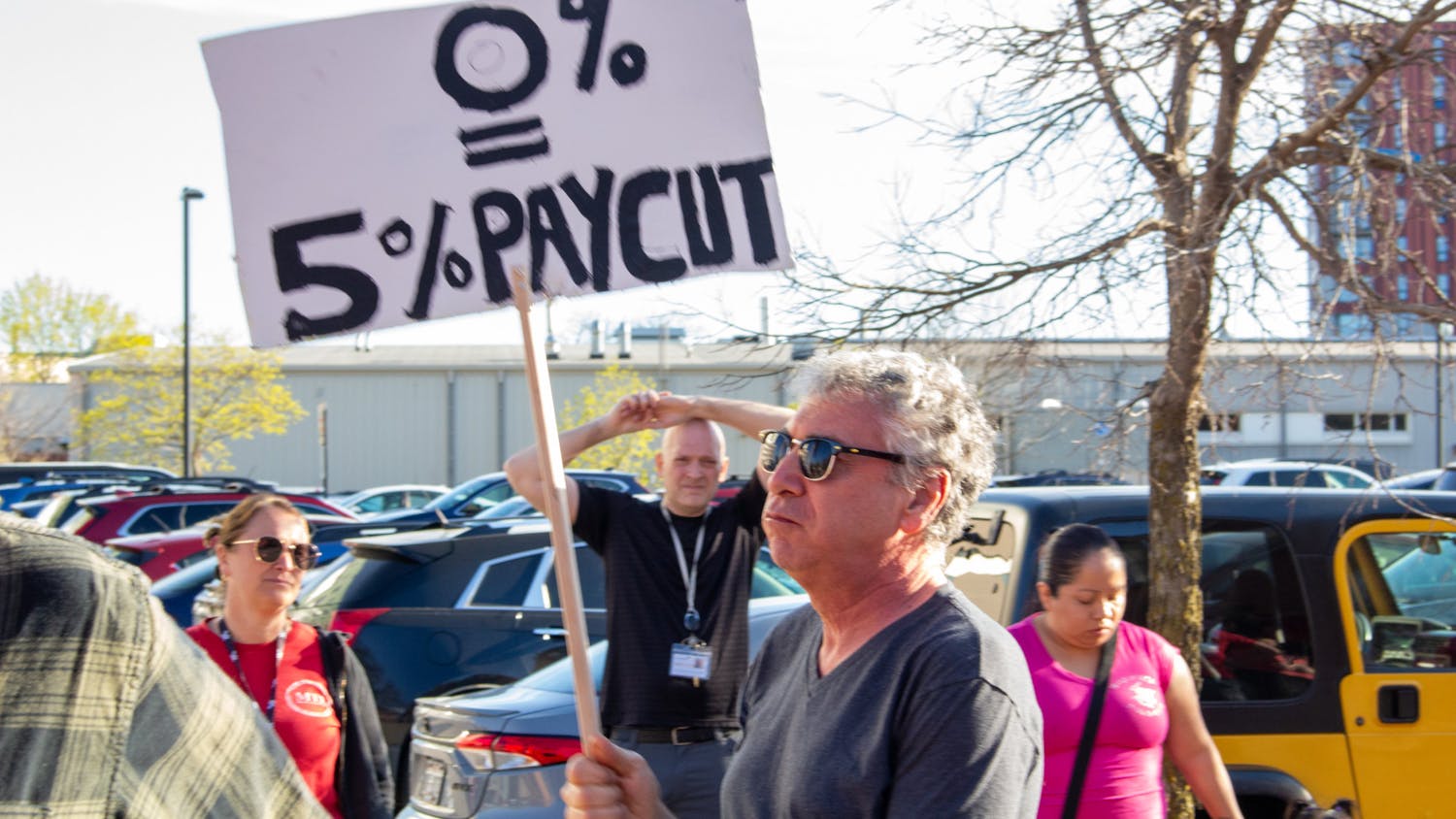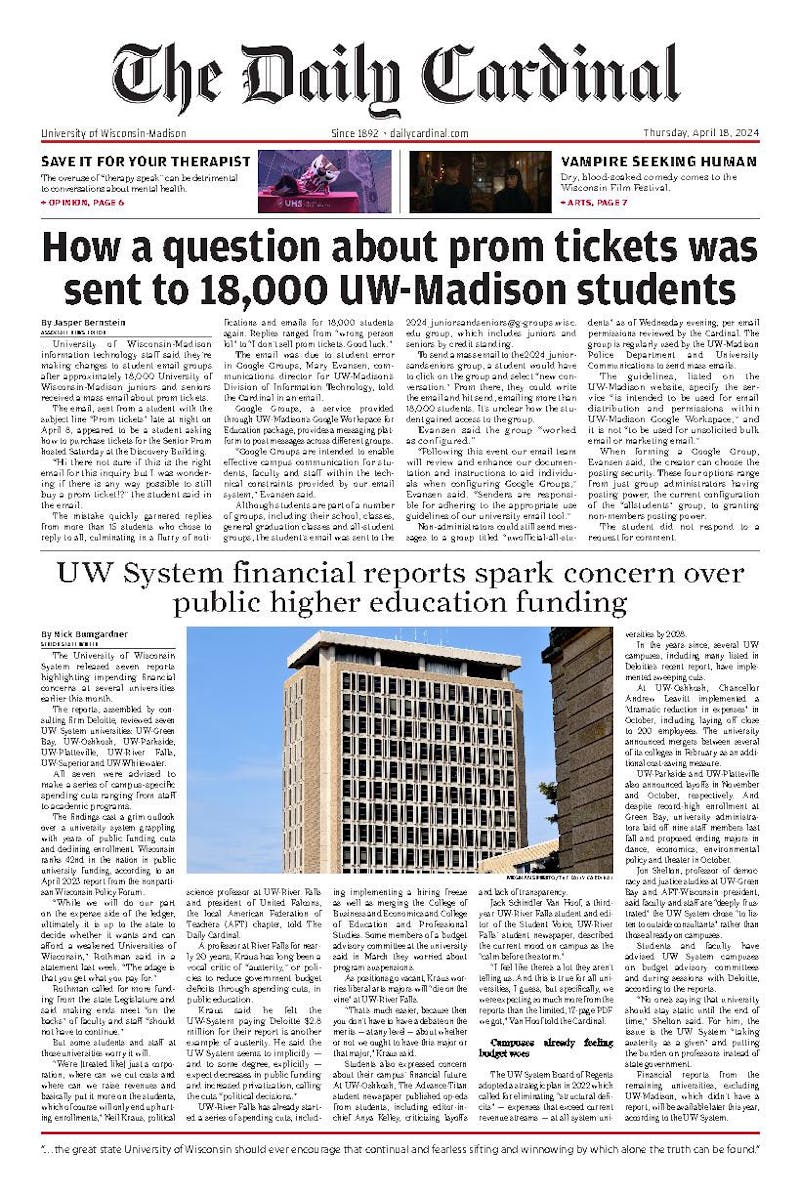Let's create a hypothetical situation. Say you're in some sort of trouble. Perhaps you ran your moped into the Abe statue, and Biddy Martin isn't fond of Lincoln's new tire-track look. This doesn't look particularly good for you, but surely you've got a good explanation for your recent breach of UW protocol. Good thing you've got due process and the opportunity to sort this whole mess out, right?
Well, that might not last for much longer. This past Thursday, the UW System Board of Regents held an informational session to present its proposed changes to UWS 17 and the brand new UWS 18, the sections of the UW Administrative Code that deal with discipline for student misconduct. As this area of the Administrative Code hasn't been updated in decades, it is probably due for some changes—the problem is that these changes greatly infringe on the ability of students to defend themselves.
One of the most notable hindrances introduced involves representation during misconduct hearings. As of now, UWS 17 states that a student ""shall"" have the right to bring a representative (an attorney, a parent or other advisory figure) with them to their formal misconduct hearing to speak on the student's behalf. With the busy schedules most college students possess, having some assistance in their hearing can be essential.
But, as outlined by Adam Kissel of the Foundation for Individual Rights in Education (FIRE), under the new revisions a student's right to counsel will be completely up to the committee or examiner in charge of the hearing. This change will lead not just to poorly represented students but completely subjective inconsistencies from hearing to hearing. According to Associate Dean of Students Kevin Helmkamp, this is actually how hearings are run already. But it is simply not fair to students to force them to defend themselves all on their own given their pre-existing educational obligations and the already stressful adversarial environment of the hearing.
Even more disturbing than this alteration is the change made to evidentiary standards in cases of sexual harassment. Currently, the threshold of evidence to be found guilty of sexual harassment is ""clear and convincing evidence,"" which is one step below ""beyond a reasonable doubt,"" the threshold of evidence for criminal trials. Under the new revisions, the threshold will be lowered to ""a preponderance of the evidence,"" meaning it only must be more likely than not that the sexual harassment accusation is true.
In other words, if there is a mere 51 percent chance the student is guilty, that student can still be punished for sexual harassment, an accusation so severe it can lead to suspension. A simple he-said-she-said case of sexual harassment could lead to severe consequences if the accuser is even the slightest bit more convincing. A student's academic fate should not be put at risk by such flimsy standards of proof.
And these are just the changes to UWS 17. The new UWS 18 would greatly expand the UW System's ability to punish students for off-campus offenses, possibly even in cases that have nothing to do with the university. According to Kissel, the Board of Regents was allegedly pressured to address off-campus behavior by Milwaukee citizens frustrated with noise violations committed by UW-Milwaukee students. Yes, that is how minor these off-campus offenses can be; just cranking up the bass on some T-Pain could possibly result in a visit from UW administration.
Under the current code, punishment for off-campus behavior is limited to activity posing a danger to one's self or others, or where a student ""seriously [impairs] the university's ability to fulfill its teaching, research or public service mission."" Obviously, a noise violation hardly fits that criteria, and it seems excessive to expand it so thoroughly that it does.
Fortunately, students still have a chance to fight these dangerous changes. The Board of Regents still needs to present these changes in the code to the state Legislature before they can be approved. Students can submit comments to admincodecomment@uwsa.edu until March 13 to express their disapproval with the code. Let it be known that students deserve due process as much as anybody else, before the aforementioned hypothetical situation becomes real, and you suddenly find yourself up the creek without a paddle.
Todd Stevens is a sophomore majoring in history and psychology. Please send responses to opinion@dailycardinal.com.





